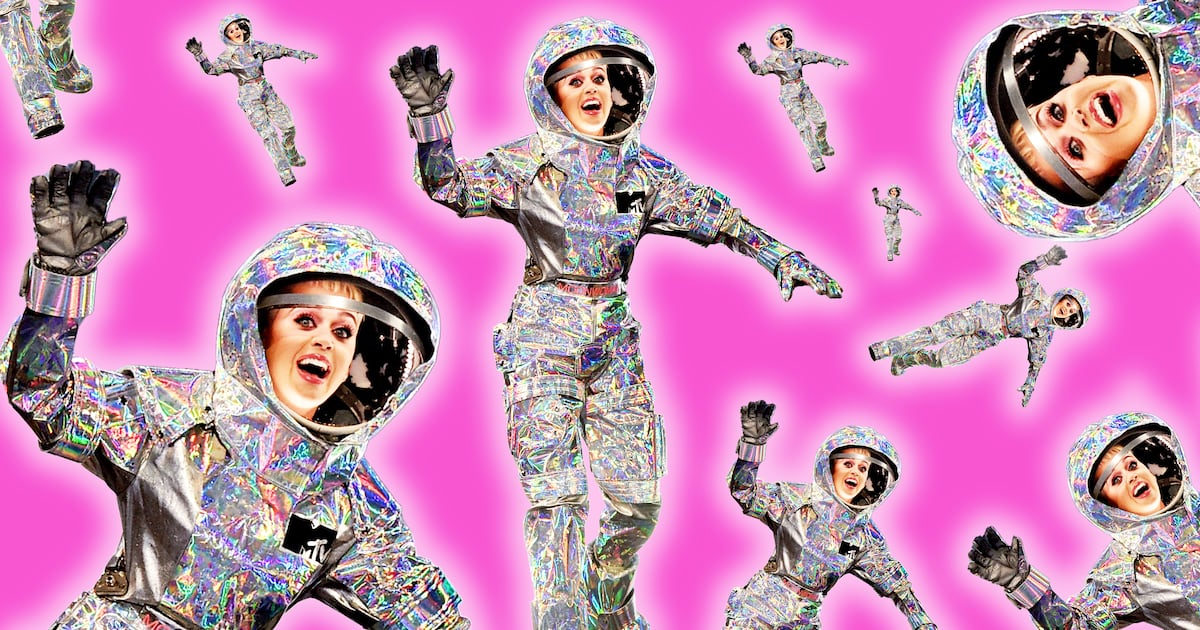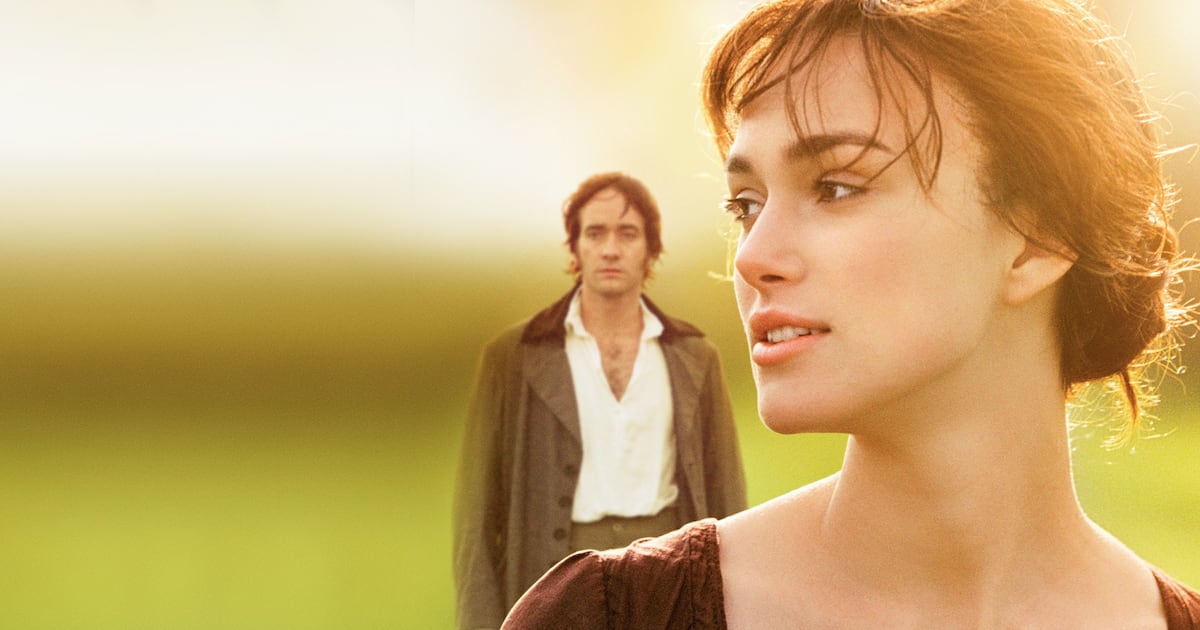What if for a fleeting moment, when you really, truly needed to, you were able to be a little brave? What if you were able to look at the thing about yourself that you’re self-conscious about, that you feel others might find weird or different, and psych yourself up every once in a while about it? Maybe even brag that it’s the thing that makes you great?
What if when you were struck by the weight of loneliness or faced with great loss, even if just briefly, you were able to access the emotional memory of love and community and put that out into the world instead of despair?
What if you smiled a lot, just because it's worth it?
There’s a lot we can learn from Marcel—and from Jenny Slate, the actress who co-created the character at a complicated crossroads of her life, and who has since seen the little guy, against all odds, soar.
Marcel is the thimble-sized hero of Marcel the Shell With Shoes On, the new film from A24. Marcel, who is literally a shell with shoes on, first appeared in the 2010 stop-motion short from Slate and her then-husband Dean Fleischer-Camp. At a time before it was an internet-culture word that people understood, the video went “viral.” In the years since, it’s spawned sequels, bestselling children’s books, and now what might be the most genuinely touching movie of the summer.
Few characters are as precious as Marcel, hence the fervent fan base he’s accrued. He’s so delicate, a diminutive little shell with a googly eye, a crescent-moon-shaped mouth, and tiny sneakers. His voice is melt-your-heart meek, that kind of whispered, toddler-like earnestness that we’re programmed to feel protective of.
“There’s something about Marcel that, because he's so other and he looks so different—he’s really not even an animal that you can identify—the only thing you can project onto him are your very real feelings,” Slate tells The Daily Beast in a recent interview.
For a 1-inch-tall miniature conch, Marcel is also incredibly resourceful, capable of adapting to a human world in inventive ways. Take the tennis ball “rover,” for example, that he uses to get around the house, or the two slices of bread he fashions into a mattress and comforter in his “breadroom.” Making all of this even more adorable is Marcel’s wily sense of humor and the glee he takes in setting up a clever pun, comedic explainers that detail not just the mechanics of how he gets around in a great, big world, but also his inspiring worldview.
“Guess what I wear as a hat?” he asks, smirking before answering: “Lentil.” Or, he explains, “One time I nibbled on a piece of cheese and my cholesterol went to 900.” There’s something irresistible about the way he describes his small-scale life with such grand sincerity: “Sometimes people say my head is too big for my body, and I say, ‘Compared to what?’”
His hammy one-liners and casual confidence are something of a mix between Borscht Belt comedian and life coach. If the Marcel the Shell With Shoes On movie had just been 90 minutes of those witty Marcel-isms—“Guess what I do for adventure? I hang-glide on a Dorito.”—fans of the character would have been more than elated: something nice and fun at a time when so much seems the opposite.
That the film would end up packing such an emotional wallop—its lovely musical score harmonized well with the sniffles at a recent New York screening—might come as a surprise. But that’s on us. By this point, we should know better than to underestimate Marcel. And, for that matter, the value and the substance that Slate, who first voiced the character 12 years ago, has always brought to her art.
“The way that we put this story together and the way that I become Marcel, that’s all really personal to me,” Slate says. “When I’m doing it, I’m just kind of following my own tiny light down a very, very personal corridor. But I do think that people like to have a safe space and a beautiful setting to feel feelings that can sometimes be overwhelming if you’re alone. Tenderness. Loneliness. The truth that loss and death are real. The truth that identity is something that can be touched by others, and sometimes brutally. I think when people watch Marcel, they’re able to project themselves onto him.”

You learn more about Marcel’s backstory in the film. A mysterious tragedy separated Marcel, his Nana Connie (voiced miraculously by Isabella Rossellini), and their pet lint, Alan, from the rest of their community. Now alone, they’ve done their best “not just to survive, but to have a good life.” (The simplicity of that sentiment alone is almost shattering.)
The house they occupy the little corners of is also a short-term rental. When a filmmaker named Dean (played by Fleischer-Camp) moves in, he makes a documentary about Marcel, which, just like the one Slate and Fleischer-Camp made in real-life, goes viral. The attention it receives takes Marcel on an unplanned journey, the hope of which is to reunite him with his community. It also helps him realize how much stronger he was, and that he might be capable of more than he ever knew or would have dreamed.
“I’ve described Marcel as my psyche at its most aspirational level of health,” Slate says. “He still has an attitude sometimes. And he has doubt and he has limits and he is capable of making cramped-looking decisions because of fear. He’s not always like totally just taking a leap into adventure.”
One of the major plot points of Marcel the movie is that it’s his grandmother who really encourages him to break out of his shell—pardon the pun. But what strikes a chord is how he represents the parts of our human selves that are constant works in progress. The difference is Marcel’s purity. His world, until now, has existed in a confined, somewhat sheltered space. He’s been shielded from the darkness, from the hecticness, and from the ugliness. “He doesn’t have the strange, hungry urgency that a lot of us live with now,” Slate says, “mostly because of social media.”
Marcel was born, so to speak, in 2010, when Slate and Fleischer-Camp were saving money at a wedding by sharing a hotel room with four other people. To make everyone in the crowded quarters laugh, Slate began talking in a voice that sounded small and shy. A little while later, Fleischer-Camp was on the hook for a short film at a Brooklyn comedy show and forgot until the last minute. He remembered Slate’s bit and was inspired to create the Marcel shell, crafting the character out of less than $10 of supplies he found at his neighborhood bodega. Within two days, they had created that first short film.
In the years since, Slate’s profile in Hollywood has exploded. Her work in films like Obvious Child garnered her multiple critics’ acting prizes, and she’s appeared in TV comedies including Parks and Recreation, Girls, House of Lies, and Married. It should come as no surprise, after watching Marcel, that she’s a prolific voice actor. In 2019, she released a Netflix comedy special called Stage Fright and a book titled Little Weirds.
A decade ago, when she and Fleischer-Camp were in that hotel room improvising this little mollusk with gumption into existence, Slate was most known for her one-season stint on Saturday Night Live. Famously, she accidentally cursed in her first on-air episode, a headline-making two seconds that ended up overshadowing the rest of her work that year.
It’s understandable, then, why she cherishes this character, and why she keeps going back. It’s also why Marcel the Shell With Shoes On was never going to be a movie of one-liners and punchlines about Marcel’s size.
“It was never a question to us whether or not to take it a bit more seriously,” she says. “I understand that it’s surprising to people because what they do remember are lines like, ‘Guess what my skis are? Toenails from a man.’ But the reason why the character exists at all is because of what Dean and I were experiencing as artists at that time. He can tell his own story, but for me, I was coming off of a year of restrictions and rejections and self-doubt. Just like, feeling really sure that there was something worthy about me, but really not knowing how to show that.”
Imagine how fulfilling it is to not only find an outlet to work through something like that, but to get to stay with it and have it evolve and deepen with you—and with someone as a creative partner who you have such an intimate connection with.
Slate and Fleischer-Camp were in a relationship when they created Marcel, and got married in 2012. After four years, they separated. Slate became somewhat of a tabloid fixture when she began dating her co-star in the film Gifted, Chris Evans. (The unfamiliar attention she received inspires a major arc in the new Marcel film.) In 2021, Slate married art curator Ben Shattuck and they welcomed a daughter.

The cast and crew of Marcel the Shell With Shoes On
A24Throughout all of this, Slate and Fleischer-Camp continued to work on Marcel projects. When asked what it was like to collaborate on a film like this with someone with whom she shares such an emotional backstory, she gives a rather moving answer. “I think it’s a giant privilege to know someone so, so well, and have them know you, and to feel totally free to extend the performance as far as it can go,” she says.
There’s a scene in the film in which Marcel talks about being separated from his family, and he becomes overwhelmed, asking if he can be plopped in a Kleenex because he’s crying. Slate was actually crying herself during the recording of that dialogue. You can hear Fleischer-Camp as the character of “Dean” in the film telling Marcel, “This will be the last thing we do today.” But Fleischer-Camp was actually saying that to comfort Slate.
“It’s a giant, giant privilege,” she reiterates. “In order to do the work we needed to do and be the people that we wanted to be with each other, we had to dedicate ourselves to creating a new space, which is what this movie is. It’s a space where things got made into something good.”







